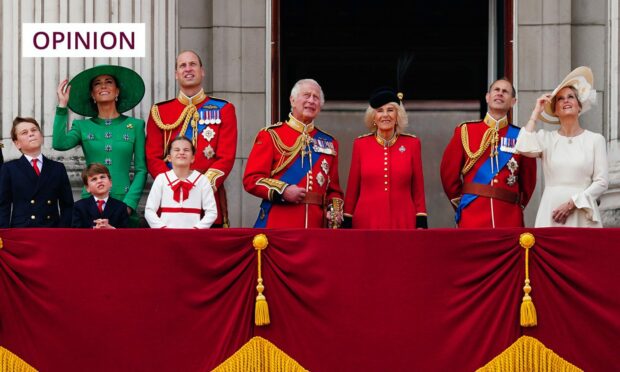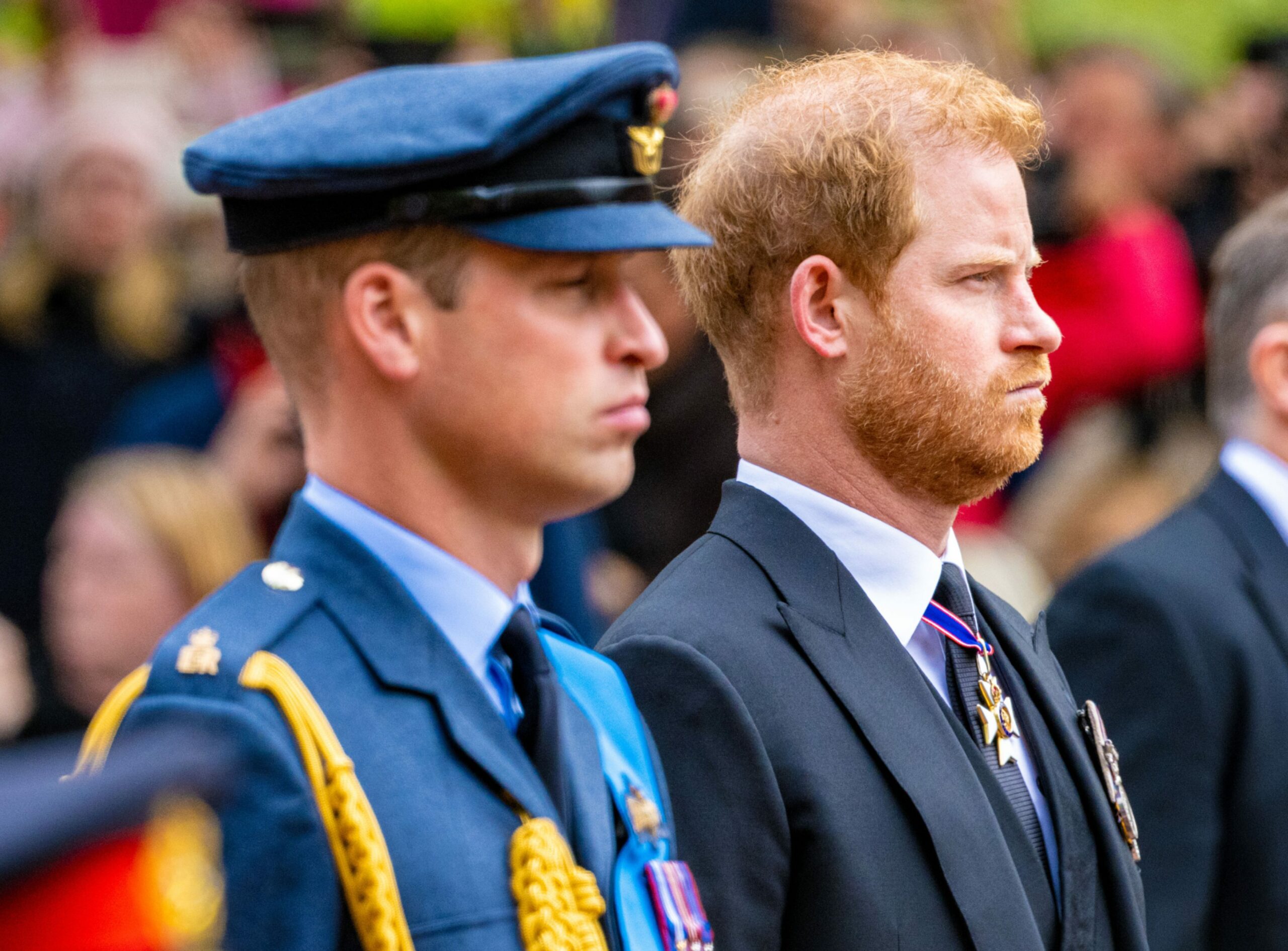The Anniversary: a royal drama. Scene one: It is one year since the matriarch’s death, and The Family have gathered for their annual holiday at the grand estate where she died.
A glossy black car drives slowly past the crowds and the paparazzi on its way to the local church which the matriarch attended. The flashbulbs explode.
The son and heir is driving the car, his wife relegated to the back seat. In the front seat, beside the heir, is the family rogue, the uncle with the murky past who has been banished from public view.
The staged message is clear: Redemption! Renewal! Reunited! But there is a question on the crowd’s lips: can The Family survive now the beloved matriarch is dead?
The Windsors like to refer to themselves as “The Firm”. In reality, they are a soap opera: “The Family Divided”. Reminiscent of Succession – the American comedy drama starring Scottish actor, Brian Cox – the plot revolves around every character fighting dirty to ensure their own ascendancy. The public are onlookers, customers who pay their subscription to watch, and are mere pawns in the power struggles. But, according to the data, the pawns are losing interest in the game.
A recent YouGov poll showed public approval has fallen to an historic low, with just 62% of people supporting a monarch over an elected head of state, compared to 75% in 2013 . (In Scotland, polls suggest 45% are pro-Windsors.) The 18 to 24-year-old age group are even less impressed by crowns – just 37% support the monarchy.
The perfect family that is not perfect
The Anniversary, scene two: The black sheep arrives like the Bad Fairy at Sleeping Beauty’s christening. Publicly, The Family are silent. The rogue uncle might be welcomed back into the fold despite past sexual misdemeanours which cost him his place in the family hierarchy, his military associations and his public profile, but not the black sheep.
His crimes? Speaking out. Displaying emotions. Challenging power. Values his generation revere but The Family don’t. Black Sheep has nowhere to stay. He’s on his own. But, publicly, he’s a constant reminder of the dysfunctional nature of The Family. The perfect family that is not perfect. Black Sheep challenges the royal house of cards in the same way his mother did.
Royal gatherings are like a family wedding where everyone has to pretend to like each other. Better keep the gin flowing or You Know Who will have a strop. Plus, alcohol is the only way to survive the divorced couple whose fixed smiles would curdle milk. Keep them apart at all costs.
Then there’s the obvious sibling rivalry between the eldest son and the problematic younger brother. (Cupped hands: where’s that awful wife of his?) Over there is the nouveau-riche wife who has started to sound more cut glass than the rest of them. And, oh God, there’s lecherous old Uncle Andy in the corner. Avoid, avoid.
Even royalists struggle with the idea of royalty as an elite power
The problem for the royal family, who on Friday mark the first anniversary of Queen Elizabeth II’s death, is that what they represent is no longer generally valued. Elizabeth was the last of a generation who – publicly, at least – represented duty, dedication and self-sacrifice. Those values are no longer the primary ones in our society, which is more likely to value autonomy, equality and self-expression.
Some estimates value King Charles’s wealth at £1.8 billion. The peasants are asking why they are paying to support a rich man’s lifestyle. Now that Elizabeth is dead, the public perception is that many of Elizabeth’s family want royal privileges without royal responsibilities.
Exposure of the Windsors has shown them to have at least the same heap of old bones as every other family – if not more
For a lot of us, the notion of a reigning family, a power inherited not because of what you have achieved but because of who you are, is a nonsensical one. But even those more in tune with that sense of social hierarchy are struggling with the idea of royalty as an elite power, an ideal family at the pinnacle of our society.
In an age of global communications, there is no longer a hiding place to bury family skeletons without the public knowing. Exposure of the Windsors has shown them to have at least the same heap of old bones as every other family – if not more. Power, as the historian Lord Acton once pointed out, corrupts. Absolute power corrupts absolutely.
The Anniversary, denouement: Still to be written and played out, but I think we all know where this is going.
The cost-of-living crisis is shortening tempers with a royal family that costs British taxpayers £87.5 million per year. Even before Charles’s coronation, there were protests of “Not My King”. And 51% of people said the cost of the coronation should not be covered by the people, many of whom couldn’t pay their energy bills.
What, they said, was the point of pomp and circumstance? He was King already. And there’s the million dollar question. King for how long?
Catherine Deveney is an award-winning investigative journalist, novelist and television presenter


